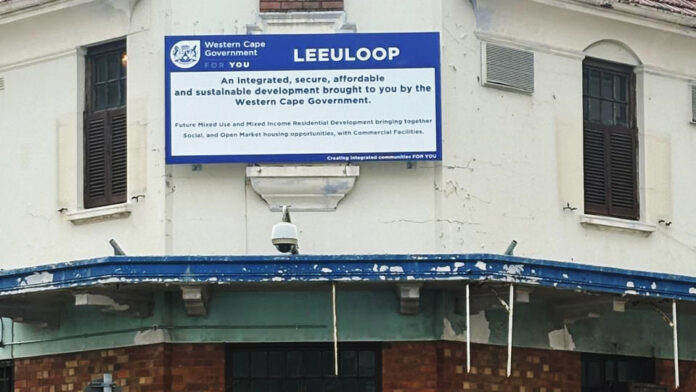The Western Cape Department of Infrastructure Development has been accused of blowing half a billion rands on a project it now says would be too expensive to continue.
This was revealed during a question-and-answer session in the provincial parliament last month.
The Good party’s provincial leader, Brett Herron, asked MEC of Infrastructure Tertius Simmers how much had been spent on the Dorp Street Office Development from 2010 to date.
The provincial government had planned to build an office block to relocate its education department from its current leased accommodation.
In his response, Simmers answered that the project was envisaged as a public-private partnership (PPP) but had failed to achieve a value-for-money affordability criterion and “was subsequently cancelled”.
His department spent R11.7 million on consultants and R1.2 million on development studies, such as town, architectural, heritage, urban design, and traffic planning.
Herron said the Western Cape government had spent over half a billion rands on office space for its education department, yet the latter still had no permanent headquarters.
He said the development was proposed in 2010 as a “flagship project to revitalise the city centre”.
He said the government then bought various pockets of land that it planned to consolidate for the office block.
“One was bought for R81.7 million, while a further R13 million was spent on consultants, planning, and transaction advisors, only for the project never to get off the ground because it was deemed unaffordable, so it was abandoned along with the regeneration programme.”
He said that to make matters worse, the project was used to justify the sale of a Tafelberg school site the provincial government already owned.
He said opposition parties strongly opposed the sale because the land was a prime location to build housing for the poor.
He said money from that sale, about R130 million, was allocated to the now-abandoned Dorp Street project.
“The province spent R9 million of that money defending this sale of valuable public land,” he said.
“Dorp Street and the Tafelberg School sites now remain vacant and unused while the education department continues to use the leased offices despite the provincial government declaring in 2010 that leasing was too expensive; hence, it forked out almost R100 million to buy land to build its own education head office.
“Just from 2020, R295.6 million has been spent on leased accommodation for the education department, while R171.1 million was used on refurbishment, including the office’s off-site records facilities.
“So, all in all, the abandonment of the Dorp Street project has cost a staggering R562 million with no deliverables in sight.
“The DA-run provincial government has opted for short-term leases and renovations instead of long-term investment in infrastructure, social benefits, or spatial transformation. Imagine what could have been achieved with that money if the education department head office had been built on the Cape Flats, in communities that need investment, jobs and infrastructure.”
Spokesperson for the infrastructure MEC Melt Botes told Sunday World that the education department spends R5.84 million a month on its current leased accommodation.
She said the reason the provincial government had not yet secured permanent offices for the education department is because it does not own suitable occupancy-ready
accommodation.
She said a Dorp Street study in 2012 indicated that the costs included in the approximately R500 million expenditure comprise municipal services, property rates, maintenance, consultants, security equipment and furniture.”
She said that because of the financial structuring of a PPP, she couldn’t say when leasing would cost more than building.
Sunday World is aware that the project cost was initially estimated at R1.1 billion.
Good’s Herron said half of that has already been spent on the current arrangement. It is unclear what price the provincial government deemed too expensive.
“Additionally, a significant amount of the costs associated with providing accommodation for the education department is one-off.
“The long-term plan remains to relocate the education department to owned accommodation.”
Only then would it become known how much the provincial government would have saved had it built.



